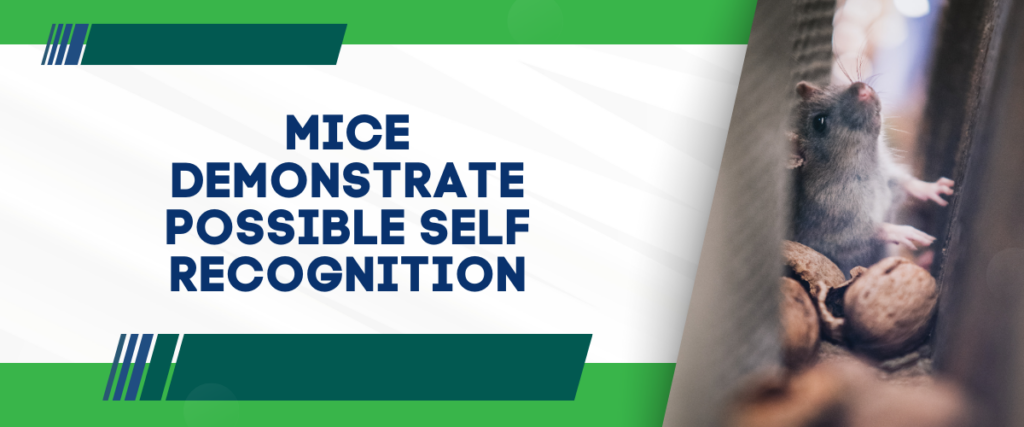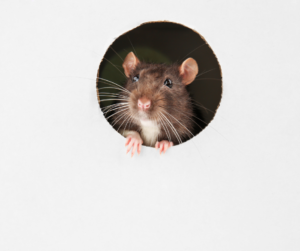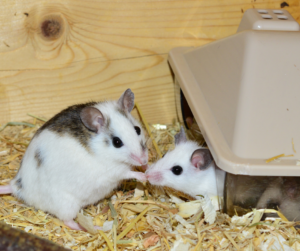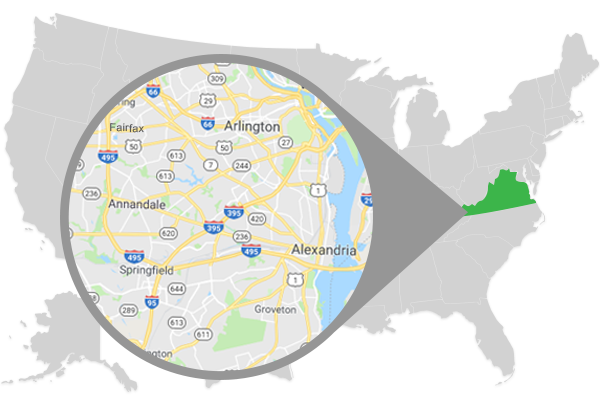
Original article: https://neurosciencenews.com/self-recognition-mice-25316/
Have you ever held up your cat to a mirror to see if it recognizes itself? Mirrors are an important part of self recognition, and it has always been debated if animals are capable of recognizing themselves. Recently, in a study done by the University of Texas Southwestern Medicine Center published by the journal Neuron reveals that mice will display self-recognition patterns and behavior under certain conditions, but only if they have been socialized a certain way. This research shows that mice do have conditional self-recognition, and this research also helped identify the neural mechanisms needed for this self-recognition, and it proved that social and sensory influences can aid mice in this self-recognition.
How Did The Mice Recognize Itself?

- If the mice were accustomed to mirrors
- If the mice had been socialized with other mice that looked like them
- If the ink spot was relatively large.
Author Jun Yokose explained that “the mice required significant external sensory cues to pass the mirror test–we have to put a lot of ink on their heads, and then the tactical stimulus coming from the ink somehow enables the animal to detect the ink on their heads via a mirror reflection”. What this means is that mice felt the sensation of ink on their heads, but only detected that it was something that needed to be corrected via grooming AFTER they viewed their reflection in the mirror.
Mice who passed the mirror test and groomed themselves to remove the ink spot were already accustomed to mirrors, but the most important part of this study is that only mice who had been socialized with similar-looking mice could identify themselves in a mirror. This points to a theory that animals develop their sense of self based on living with other animals that look similar to them. For example, a black-furred mouse raised around other black mice will be able to recognize that the large spot of white ink on its forehead is not normal. However, a black mouse raised around white mice will NOT be able to identify the white spot on its forehead as abnormal.
The researchers figured out via gene expression mapping that the same subset of neurons in the ventral hippocampus were activated when the mice saw themselves in the mirror AND when the mice saw other mice of the same strain and fur color that looked similar to them. Mice need social interaction to develop those neural circuits that allow for self-recognition. However, the mice still felt the physical stimulus of the ink on their foreheads, so researchers say the next step will be testing mice with visual, non-tactile stimulation like Snapchat filters to see how mice respond to that.
How Smart Are Mice?

What Can I Do About Mice In My Home?
While it may be fun to speculate and read about the intelligence of mice, it is not fun at all to actually find these rodents skittering around in your pantry or kitchen. So what can you do about mice in your home? While some preventative treatments can help, like sealing off entry points and making sure that no food crumbs or spills are left out, if you are seeing one mouse, then there are likely many more that you CAN’T see. Your best course of action is to contact a licensed pest control professional like Summit Pest Control. We offer mice and rat control services in the Alexandria, Arlington, Fairfax and Fredericksburg areas, and our licensed technicians can also provide you with exclusions, seal outs and other preventative measures to keep mice from returning once they are removed. Prices are variable, and depend on what our technicians find after a home inspection. If you need mice control in Northern Virginia, contact us today at 703-884-2124!




